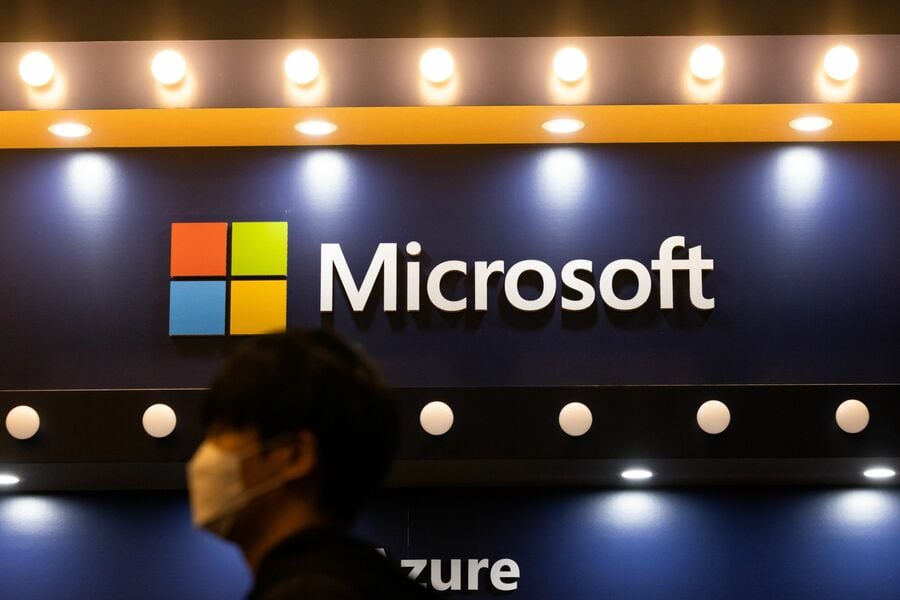

At Microsoft’s annual meeting on Dec. 13, shareholders will vote for the first time on whether to support an analysis of the climate risk posed by the company’s 401(k) retirement options.
The vote comes less than a month after the Department of Labor announced a new rule for 2023 that explicitly allows 401(k) plan fiduciaries to consider climate change — along with other environmental, social and governance factors — when selecting retirement investments. As Republican political leaders in Florida, Texas and other states restrict or ban ESG-based investment strategies, the Microsoft vote is indicative of a nascent battle over such investments in retirement funds.
Microsoft is largely considered a corporate leader on climate action. By the end of the decade, the tech giant has pledged to go carbon negative — removing more carbon dioxide from the atmosphere than it emits — making its climate ambitions more aggressive than the net-zero goals of many other companies. Microsoft also committed to spending $1 billion to boost development in carbon-removal technologies, a crucial tool for keeping future global temperatures in check.
But the company has not yet applied the same initiative to its retirement plans. To change that, a group of Microsoft employees worked with the activist shareholder group As You Sow on a resolution that calls for Microsoft’s board of directors to “provide a report assessing how the Company’s 401(k) retirement funds manage the growing systemic risk to the economy created by investing retirement plan funds in companies contributing significantly to climate change.”
Employees can push their employers to take action by making clear that “a whole ton of us really want this,” says Maren Costa, a Microsoft employee who supports the resolution. Costa previously worked at tech rival Amazon, where she also helped organize employees to push for stronger climate action.
As You Sow rates Microsoft’s most popular retirement offering, the BlackRock LifePath Index series, “poor” for investments in fossil fuel companies, as well as agribusiness companies linked to deforestation. The fund, with a targeted maturity of 2050, has 8.5% invested in fossil fuel companies and 0.7% invested in agribusiness producers and traders.
“The broad message is that this fund is essentially not taking steps to consider climate risk,” says Andrew Montes, director of digital strategies at As You Sow. “So people are, probably without their knowledge, being exposed to significant levels of investment in companies that are both contributing to the climate crisis but also are at significant risk from the climate crisis.”
Microsoft’s board is recommending shareholders vote against the proposal. When reached for comment, Microsoft directed Bloomberg News to its shareholder opposition statement, in which the company accuses the resolution’s submitters of mischaracterizing how its 401(k) plan works and minimizing the plan’s inherent ESG considerations. Microsoft also points to the self-directed option currently available to employees, which allows them to choose from a “huge range” of investment options, “including hundreds of climate-friendly and other ESG-themed options that can be easily identified and filtered, via the self-directed brokerage window.”
While the self-directed option does allow employees to funnel their savings into funds of their choosing, it also requires more work on the part of interested employees. Unlike Amazon, for example, Microsoft currently has no ready-made sustainable investing retirement option.
Even supporters of the shareholder resolution acknowledge that it’s unlikely to get majority support this time around: Raising internal and public awareness is the primary goal, and it’s not uncommon for a company to take action on issues even when shareholder resolutions fail. If at least 5% of shareholders vote in favor, the resolution can also be resubmitted next year. Voting on similar climate resolutions earlier this year, 8.8% of shareholders at food company Campbell Soup Co. approved, as did around 9% of shareholders at Amazon. Both resolutions can be reintroduced.

Since Vis Raghavan took over the reins last year, several have jumped ship.

Chasing productivity is one thing, but when you're cutting corners, missing details, and making mistakes, it's time to take a step back.

It is not clear how many employees will be affected, but none of the private partnership’s 20,000 financial advisors will see their jobs at risk.

The historic summer sitting saw a roughly two-thirds pass rate, with most CFP hopefuls falling in the under-40 age group.

"The greed and deception of this Ponzi scheme has resulted in the same way they have throughout history," said Daniel Brubaker, U.S. Postal Inspection Service inspector in charge.
Stan Gregor, Chairman & CEO of Summit Financial Holdings, explores how RIAs can meet growing demand for family office-style services among mass affluent clients through tax-first planning, technology, and collaboration—positioning firms for long-term success
Chris Vizzi, Co-Founder & Partner of South Coast Investment Advisors, LLC, shares how 2025 estate tax changes—$13.99M per person—offer more than tax savings. Learn how to pass on purpose, values, and vision to unite generations and give wealth lasting meaning
